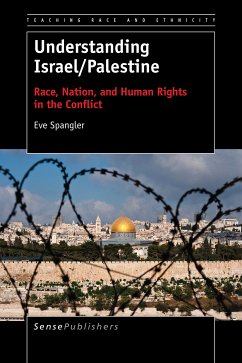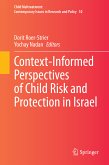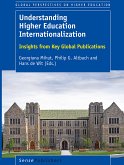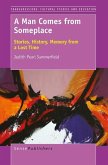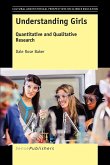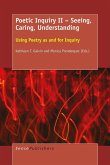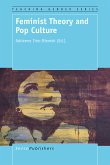The Israeli-Palestinian conflict is the longest, ongoing hot-and-cold war of the 20th and 21st centuries. It has produced more refugees than any current conflict, generating fully one quarter of all refugees worldwide. Everyone knows that the Palestinian-Israeli conflict is important itself, and is also fueling tensions throughout the Middle East. Yet most people shy away from this conflict, claiming it is "just too complicated" to understand. This book is written for people who want a point of entry into the conversation. It offers both a historic and analytic framework. Readers, whether acting as students, parishioners, neighbors, voters, or dinner guests will find in these pages an analysis of the most commonly heard Israeli positions, and a succinct account of the Palestinian voices we seldom hear. I argue that human rights standards have never been used as the basis on which the Israeli-Palestinian conflict should be resolved and that only these standards can produce a just and sustainable resolution. This book will be useful for classes in Middle East studies, peace and conflict studies, Middle East history, sociology of race, and political science. It can be helpful for church groups, labor groups, or other grass roots organizations committed to social justice, and for all readers who wish to be informed about this important topic. "Professor Spangler's ... quest for historical and political understanding takes us on a brave and intimate journey into the consequences of Jewish privilege and Jewish victimhood, the agendas of imperial superpowers, and the Palestinian struggle for self-determination." Alice Rothchild, MD, author of Broken Promises, Broken Dreams: Stories of Jewish and Palestinian Trauma and Resilience, and producer and director of documentary film, Voices Across the Divide "[A] sharp, poignant, well-documented dossier [that] provides readers with all the most-needed facts to grasp the conflict and get involved." - Sam Bahour, co-editor of Homeland: Oral Histories of Palestine and Palestinians and business development consultant and activist based in Palestine "[T]his one is exceptional! It recounts a historical tale; it provides theoretical underpinnings; it does comparative work; it examines all the details and aspects of ongoing debates; and it brings all to life with real-life stories ... the wonder of this book is its insistence on hope - not a naïve, idealistic hope, but one accompanied by a tool-box for concrete action that might right the wrongs of this tragic tale." Anat Biletzki, Professor of Philosophy, Tel Aviv University and Albert Schweitzer Professor of Philosophy, Quinnipiac University; Chairperson of B'Tselem, 2001-2006 Eve Spangler is a sociologist and a human and civil rights activist. For the last decade, her work has focused on the Israel/Palestine conflict; she argues that human rights are the neglected standards that could lead to a just and sustainable solution.
Dieser Download kann aus rechtlichen Gründen nur mit Rechnungsadresse in A, B, BG, CY, CZ, D, DK, EW, E, FIN, F, GR, HR, H, IRL, I, LT, L, LR, M, NL, PL, P, R, S, SLO, SK ausgeliefert werden.

